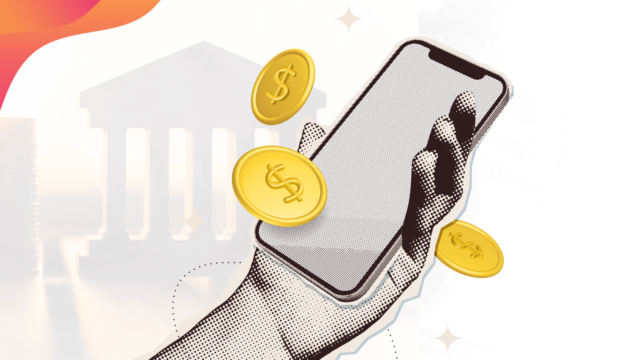Who offers favourable loan terms, banks or mobile loan apps?
Banks and mobile loan apps offer loan products with varying terms and conditions.

The high cost of living has pushed many Kenyans to increasingly turn to survival loans from mobile loan apps and banks to meet their daily basic needs like food, rent, and transport.
A recent study conducted by Consumer Insight revealed that the number of Kenyans borrowing from digital lenders had increased to 52 percent in 2023 from 40 percent in 2019. Conversely, the Kenya Bankers Association (KBA) said the industry was seeing a reduced appetite for loans for capital expenditures such as business expansion or construction, and instead, most borrowers are requesting short-term loans.
The survey also noted that 59 per cent of Kenyans borrow using their mobile phones, a sharp increase from 33 per cent recorded in 2016. This is attributed to the growth of digital lenders and loans after the introduction of M-Shwari in 2012.
In December 2021, the Central Bank of Kenya (Amendment) Act 2021 came into effect paving the way for the subsequent gazettement of Digital Credit Providers Regulations, 2022 (the Regulations) in March 2022.
The regulations provide for the licensing and oversight of previously unregulated Digital Credit Providers (DCPs). They also introduced the need for corporate governance, data protection, and disclosures of pricing models, among other requirements.
In Kenya, both banks and mobile loan apps offer loan products with varying terms and conditions.
Bank loans:
- Favourable interest rates. Banks offer lower interest rates than digital loan apps. This is because banks operate under stricter regulations (by CBK) and have a more established financial infrastructure.
- Flexible repayment terms. These institutions provide longer repayment periods, allowing borrowers more time to repay their loans without facing high penalties. For instance, monthly repayments are more manageable for borrowers.
- Higher loan amounts. A bank can offer higher loan amounts compared to mobile loan apps.
- Credit history consideration. A bank will consider a borrower’s credit history when determining loan eligibility and interest rates. If you have a good credit history, you may be offered a favourable loan term.
Mobile/digital loan Apps:
- Convenience and speed. Digital/mobile loan apps usually offer unparalleled convenience and speed. The application process is simplified, and the loan is disbursed within minutes, which makes them ideal for urgent monetary needs.
- Accessibility. These digital loan apps are easily accessible to the wider population. You don’t need to have a bank account, credit history, or collateral to access them. In most cases, these apps use alternative data sources like your mobile usage patterns to determine how creditworthy you are.
- Small loan amounts. Unlike banks, digital loan apps provide smaller, short-term loans. These kinds of loans are suitable for covering immediate expenses, but sometimes, they are not sufficient to cover large financial needs.
- High interest rates. Digital/mobile loan apps charge higher interest rates than commercial banks. Sometimes, these rates can lead to debt traps if you are not well informed.
As Kenyans navigate the complicated pathways of their financial landscapes, borrowing money has emerged as an indispensable tool in fulfilling diverse aspirations and effectively addressing various monetary obligations. However, it is crucial to approach loans with responsibility and make informed decisions to avoid potential pitfalls and financial distress.
